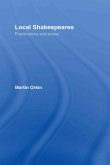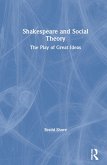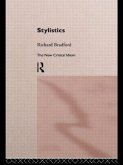'If there were a version of Desert Island Discs for literary criticism, this book would top the list of things I would want with me to read again and again for its clarity of purpose, its generosity of spirit, the brilliance of its insights, and its ability to engage seamlessly and resonantly with current scholarship, contemporary politics, historical dynamics, and the meanings of Shakespeare.' - Lena Cowen Orlin, University of Maryland, USA, and Executive Director of the Shakespeare Association of America
'Alan Sinfield has been one of the most thoughtful and provocative writers on early modern culture for the last two decades and his critical power is evident throughout this book.' - Kate McLuskie, Director of the Shakespeare Institute, Stratford-upon-Avon, UK
'Those familiar with Sinfield's previous work will need no encouragement to read the book, and newcomers will find it an excellent introduction.' - The British Theatre Guide
'I predict a long shelf life for this book. Anyone continuing, or embarking for the first time on queer criticism should consider it.' - Goran Stanivukovic, University of Sheffield
'Alan Sinfield has been one of the most thoughtful and provocative writers on early modern culture for the last two decades and his critical power is evident throughout this book.' - Kate McLuskie, Director of the Shakespeare Institute, Stratford-upon-Avon, UK
'Those familiar with Sinfield's previous work will need no encouragement to read the book, and newcomers will find it an excellent introduction.' - The British Theatre Guide
'I predict a long shelf life for this book. Anyone continuing, or embarking for the first time on queer criticism should consider it.' - Goran Stanivukovic, University of Sheffield








